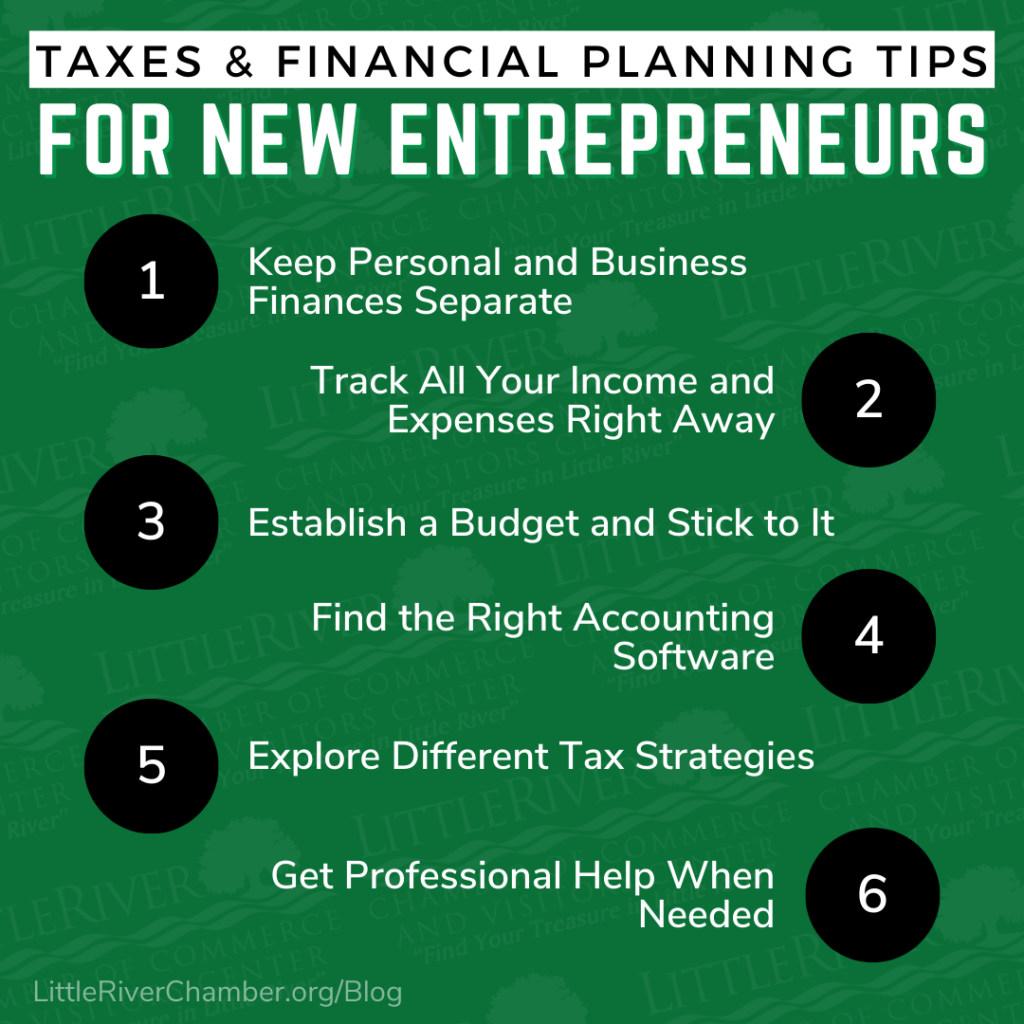As a self-employed professional, tax and financial planning are crucial aspects of your business life. Handling these responsibilities well will help ensure the success of your business, while neglecting them can lead to costly mistakes and setbacks. In fact, many self-employed professionals end up overpaying on taxes or face financial issues due to a lack of planning.
Here are six basic tips that can help to handle your taxes and finances well as a self-employed professional:

Keep Personal and Business Finances Separate
This is listed first for a reason! It can be easy to mix your personal and business finances, especially if you are starting out and don’t have a lot of money. However, it is vital to keep these finances separate for tax purposes.
You absolutely should open a separate bank account for your business. This will keep transactions separate and help keep careful records of all your income and expenses related to your business. You can get a business account from any local bank.
Track All Your Income and Expenses Right Away
This is important for both tax purposes and in making informed financial decisions. Tracking all your income and expenses will give you a clear picture of how much money is coming in and going out. Knowing how much money is passing through your business helps you make informed decisions about things like pricing strategies and budgeting for your business.
If you don’t know how much money is possible or even how much you have right now, how can you expect yourself to plan and execute projects or services effectively?
You should be updating your bookkeeping at least monthly, but you can create small habits that make this easier.
For example, if you purchase items and get a physical receipt, immediately write notes on the receipt. It might be what client it’s related to, or some other small detail you wouldn’t remember months later.
Then, take a picture of your receipt and email it to yourself (or billing department). Use the same sentence structure for your subject line to make it easier to look up later, like ‘Year, Month, Business Name Purchased From’ (ex: ‘2023 March Office Depot’).
This ensures you have a copy of receipt in case you lose it, but also makes it easier to find later!
You might want to take it a step further and save a copy of your receipts to your computer or cloud drive. Combine them into a single PDF or simply save them to a file folder, organized by month & year.
Establish a Budget and Stick to It
A reasonable budget should allow you to set realistic savings goals and make informed decisions about things like investments and expenses.
Be sure to have one for your professional work and your personal finances. In other words, your work should pay you separately, and you shouldn’t have a personal bill labeled as an expense.
If you’re not sure how to make your first budget, look at your previous year’s expenses. If you’re a new business, ask for help from others in your industry or hire a professional. There’s a lot of helpful people out there! Whether you ask around at networking events, or join an industry Facebook Group, you’d be surprised what other business owners would be willing to share with someone new.
Find the Right Accounting Software
Side hustlers often start out with simple spreadsheets, which could work for a time, but once you regularly have several transactions a month, you should look into using an account software.
There are many different options available regarding accounting software, but you should look for one with the capabilities you need to manage your finances effectively. This might include features such as tracking invoices, paying bills on time, reconciling bank accounts, generating financial reports, and more.
A popular option is Quickbooks, but there might also be some industry specific solutions, so be sure to ask around or to do some research first.
If you use a separate tool for invoicing, see if it integrates with the accounting software you’re looking at. This can save you a lot of time later on!
Explore Different Tax Strategies
As a self-employed professional, staying up to date on changing tax laws and regulations so that you can avail yourself of any breaks that may be available to you is vital.
For example, some self-employed professionals are eligible for the home office deduction, which can help offset the costs associated with working from home. In addition, you can save money by incorporating your business or by making charitable donations and other methods.
You can start out by some simple Googling a search for ‘tax strategies’ for new entrepreneurs, and by your industry. Once you have a basic understanding (even if it’s not in-depth), you can look at hiring a tax strategist. Be sure to ask tax professionals if they do ‘tax strategy’ in addition to simply filing your taxes.
Get Professional Help When Needed
If you’re having trouble managing your taxes or finances, don’t be afraid to seek out the help of a professional. Be sure to consult an accountant or financial advisor who can offer advice, answer your questions, and ensure that you make efficient and effective financial decisions.
In summary, if you’re a self-employed professional, it’s important to carefully manage your taxes and finances to avoid costly mistakes and stay on top of your business goals. By tracking your income and expenses, finding the right accounting software, exploring tax strategies, establishing a budget, and getting professional help, you will be much more likely to set yourself up for success as a self-employed professional.
Next article:











